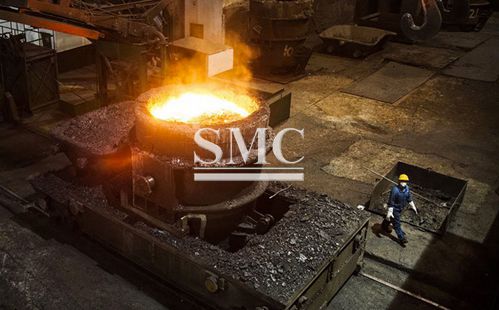
- Company overview The heart of SMC Vision & Philsophy Partnership Certifications Company culture
- Our service Design and Engineering Maintenance and Service Examine Production Line Upgrade and Transformation Storage and Logistics Processing, Trading and Distributor
- Management Our history Global responsibility Info Center
- Procurement center Internship
- Metal Steel Products Stainless Steel Products Aluminum Products Copper Products Galvanized Steel and PPGI Special Alloy Building Material
- Containers ISO Standard Container Equipment Container Storage Container Refrigerated/Reefer Container Offshore Container Container House Tank Container Container Fittings Container Trailer
- Gas Cylinder & Fire Extinguisher Cryogenic Liquid Cylinder Oxygen Gas Cylinder Storage Tank CNG Gas Cylinder LPG Gas Cylinder Hydrogen Gas Cylinder Nitrogen Gas Cylinder Industry Gas Cylinder Fire Extinguisher
- Metal Machinery Forming Machine Cutting Machine Processing Machine Bending Machine Block Machine Other Machinery Motor Spare Parts
- Mechanical Products Miscellany Mooring Equipment Marine Equipment Vehicle Industry Pressure Vessel Conveyor Belt Laser Equipment Bearing
- Electrical System Power Distribution Automation Electrical Cable Solar Power System Electric Protection System Transformer Production Line Lighting System
- Project Plastic Pipes and Pipe Fittings Fiberglass Reinforced Plastic Pontoon System
China’s Steel Industry Development

In the city of Anshan, a war memorial
located in Lieshishan Park commemorates the conquest of the city by the People
Liberation’s Army in 1948. It was from this city that the incredible expansion
of China’s steel industry began. Indeed, North-Eastern region production was
the first to be increased -thanks to the Soviet Union’s help as well. This
moment of growth led total output to rise to 1.349 million tons by 1952.
Lately, the Five-Year Plan contributed to
boost steel production by roughly 400%. Almost 4 billion Yuan were spent in the
successful attempt to expand production. But difficult times were looming.
From 1958, the first year of The Great Leap
Forward, to 1968 total output kept increasing but far less remarkably then the
previous decade. The reasons for this slackening were related to the failed
fulfillment of production targets and the misconduct of development plans.
However, in the early 70s Chinese steel
industry recovered and production reached 23.7 million tons. During that time,
the terrible Tangshan Earthquake and the political aftermath of Mao’s death
threatened the production capacity of Chinese steel mills.
New leader Deng Xiaoping decided to adopt a
new industrial policy by encouraging modernization and enhancement of already
existing plants rather than the creation of new ones. Output quality improved and
factories became more efficient, paving the way for the surge in the 2000s.
Such adjustments also aimed to solve another problem, namely the import of
metal products needed to create cars and machineries.
At the end of the 90s, a large
privatization reform was carried out and in this new dimension private-owned
smelters thrived. Total output kept increasing, with more than 200 million tons
in 2005 and approximately 500 million in 2010. Nowadays China is the largest
producer and exporter of steel, accounting for half of the world’s capacity.
Today’s challenge of China’s steel industry
is reducing overcapacity. The government aims at reducing production of 150
million tons before 2020. Creating new plants in industrial regions will be
more difficult, while the opening of factories is encouraged in less polluted
areas. Furthermore, recent eco-friendly policies and the closing of obsolete
smelters, mean that prices of steel products will rise, as it happened last
year.
Shanghai Metal Corporation was founded in 1980 and we provide high-quality products to our customers ever since. SMC industry has developed during last thirty years and we now supply medical commodities as well. For a full list of the product, information and inquiry, please click here.
Shanghai Metal Corporation is a trusted aluminum alloy, aluminum foil price, stainless steel price and stainless steel manufacturer, kinds of stainless steel in china.
